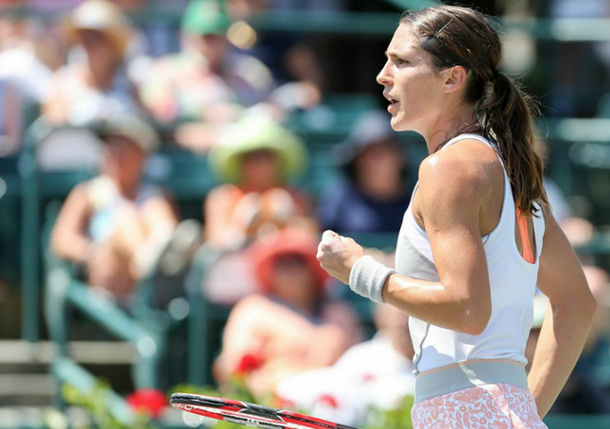
Andrea Petkovic has gained some insight from battling injuries over the years.
The 28-year-old German has overcome more injuries than an MMA fighter in recent years, including a torn ACL, ruptured meniscus, herniated disc in her back, ankle injuries and food poisoning to regain a spot in the Top 25.
Video: Muguruza's Birthday Smash
A firm believer in mind-body connection, Petkovic believes pressure—from defending ranking points, from facing rising young players in early rounds, from training harder to meet the physical demands of the pro circuit and from mental duress—can contribute to injuries.
"I think a lot of injuries come from a position where you're maybe not 100 percent comfortable in your body. Maybe you feel a lot of pressure," Petkovic told the media in Beijing. "I feel like so many young players came up this season and they were really pushing from the back. I felt like I needed to work harder. I felt like I needed to push myself harder. Maybe the others felt that as well. Especially those who started the season in the top and who were sort of defending stuff, and people were pushing from the back."
Petkovic suffered opening-round losses in two of three tournaments during this Asian swing, losing to 106th-ranked Monica Puig in Guangzhou and to British qualifer Johanna Konta in Wuhan.
The world No. 21 said the deeper level of competition on the WTA Tour makes early rounds more stressful these days.
"I just feel like also tough matches in the first couple of rounds. It's not like you can get any easy matches anymore," Petkovic said. "It's just the constant pressure. It's just a very broad, high level of tennis in women's tennis right now, which is great to be a part of on one side, but on the other side it's kind of frustrating, you know, because you can play an okay match, like I did in Wuhan. I didn't play great, but I played okay. I lost in two sets to a really great player who was on her top game. That can be really frustrating."
Confronting those weekly challenges can create a cycle of self-imposed stress and punishment, too.
"You get in this spiral of negative thoughts and you are really harsh to yourself, you beat yourself up. From that kind of attitude, it's difficult to stay healthy," Petkovic said. "I think it's everything together, right? Then maybe you schedule your tournaments not as perfectly because you feel like you have to gain some points elsewhere when you didn't play as well. So everything comes together, and then it's maybe a little bad luck also, maybe just a little bad luck as well, then it sort of goes awry. That's really frustrating. You have to keep your mind straight in order to get back out of it, I guess."